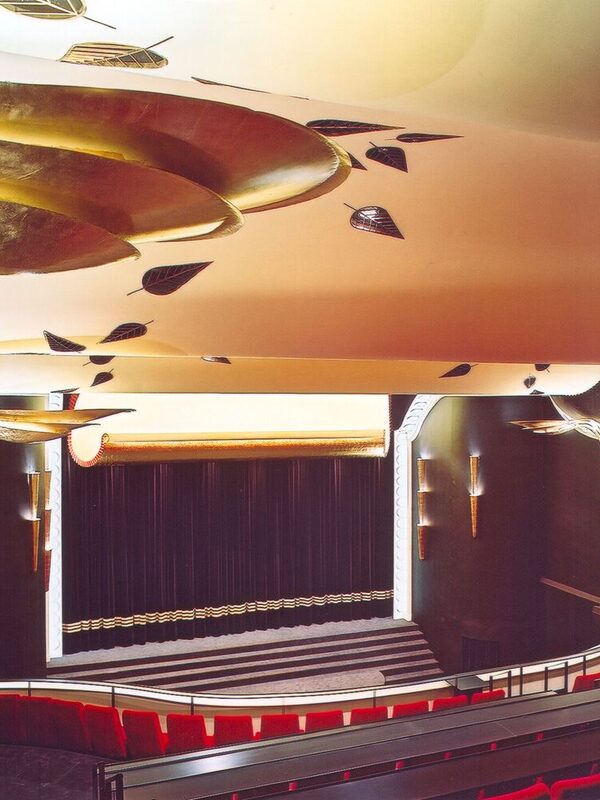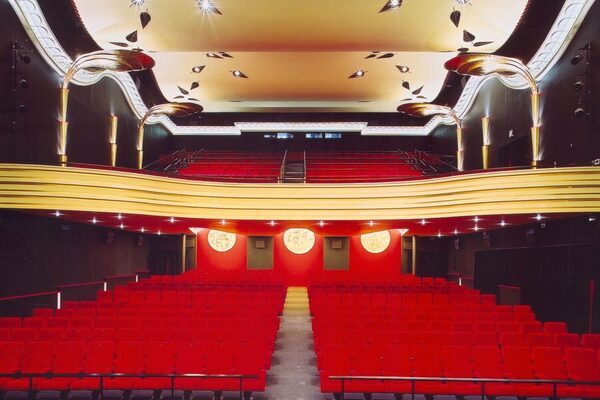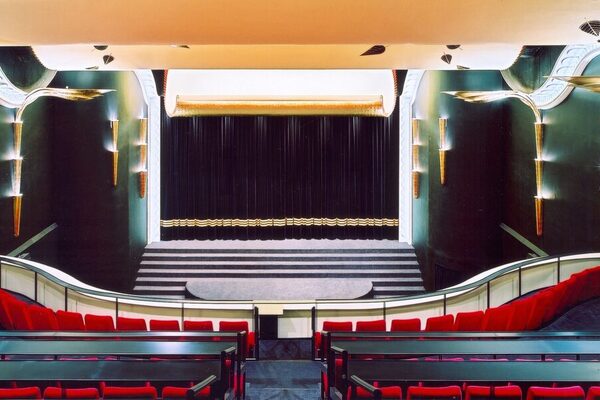Caligari FilmStage
The Caligari FilmBühne, Wiesbaden's municipal cinema, now hosts around 18 to 20 screenings per week. National film festivals are regularly held on its premises. The history of the cinema began in 1980, when historical film rarities were shown once a week in the "Archivkino Caligari". Since then, the cinema has received numerous awards, including the Wiesbaden Culture Prize in 1989.
The Caligari FilmBühne is the municipal cinema in Wiesbaden and is run by the cultural office of the state capital. The name Caligari comes from the masterpiece of expressionist silent film "The Cabinet of Dr. Caligari" (D 1919) by Robert Wiene from 1919.
The cinema is known for its sophisticated and varied program. European cinema, German films and film history are cultivated just as much as international arthouse productions, documentaries, children's films and short films. As a rule, the films are presented in series, e.g. "Stories from the Orient", "Man & Machine" and "Ciné en vogue - Current French Cinema". The oeuvre of selected directors and actors is presented in retrospectives. Where possible, the films are shown in their original version with German subtitles. The "Filmstadt Wiesbaden" series focuses on the works of filmmakers in Wiesbaden. Silent films with live music are presented once a month by the German Film Institute - DIF e.V. The "Dream Cinema for Children" and school events introduce the next generation to the art of film. International film festivals(film festivals) and events with guests from the film world are the highlights of the Caligari's repertoire.
The former "Ufa im Park" was built in 1926 as a silent movie theater in neo-Gothic style. In the years after the Second World War, the building was used by the Americans. A fundamental redesign according to the plans of architect Ludwig Goertz took place in 1955, and the unique and listed interior design, which has been preserved to this day, dates from this period. Through an inheritance, the building came into the hands of the city of Wiesbaden in the 1970s and served as an alternative location for the theater during the renovation of the Hessian State Theater Wiesbaden.
On April 16, 1980, the German Institute for Film Studies - DIF e.V. opened the "Archive Cinema Caligari" under the direction of Dorothea Gebauer. Once a week, film historical rarities, not only from the institute's own archive, were on the program. In 1989, Dorothea Gebauer was awarded the Cultural Prize of the State Capital of Wiesbaden for the Caligari Archive Cinema. Until the 1990s, the Caligari shared the venue with the boulevard theaters "Rheingauer Volkstheater" and "Komödie am Park", which meant that cinema operations were only possible to a limited extent.
In September 1990, under the direction of Jutta Beyrich, the Cultural Office of the City of Wiesbaden launched its municipal film program and the "Dream Cinema for Children", initially with one screening day per week. Since then, cinema operations have been continuously expanded. The film festival "exground on screen" (today: exground filmfest) took place at the Caligari for the first time in 1991. In an internal competition "Corporate Design for the Caligari FilmBühne" in cooperation with the Wiesbaden University of Applied Sciences(RheinMain University of Applied Sciences), Department of Design, the logo and the program booklet concept were created in 1995. The anniversary "100 years of cinema" (1995) was celebrated under the motto "Red Roses & White Lilacs - The heyday of Wiesbaden as a film city" with films from the 1950s produced in Wiesbaden. In the "Volker Schlöndorff Film Series", almost all films by the Wiesbaden-born Oscar winner were presented in 1996. Schlöndorff himself was a guest at the Caligari for the opening film "The Tin Drum". In a letter to the city at the time, he wrote: "The old Ufa building is a jewel and an absolute rarity among German cinemas. I would like to work with you to ensure that the city saves the substance of this unique building, restores it and equips it with the appropriate technology."
The praise from such a competent pen was finally followed by action. At the turn of the millennium in 1999/2000, the city of Wiesbaden renovated the Caligari for around 3.5 million Deutschmarks. Since then, the municipal cinema has presented itself in its splendid new guise. The black auditorium with its golden décor and curved wave ceiling offers cinema enjoyment with plenty of atmosphere. There are a total of 427 comfortable red seats in the stalls and on the tier. The cinema technology has been modernized and the foyer has been given a new look. In 2001, the team of architects - Brigitte Böke and Hardmuth Sonntag - were awarded the prize of the Hessian Monument Protection Authority for the particularly successful implementation of the conversion in terms of monument protection.
On November 3, 2000, the Caligari FilmBühne was ceremoniously reopened with a short film program in front of a sold-out audience. Since then, the Caligari has been a daily community cinema with around 18 to 20 screenings per week. The municipal cinema is also a forum for a number of film initiatives and cooperation partners, including the Deutsches Filminstitut - DIF e.V., Wiesbadener Kinofestival e.V., Nueva Nicaragua e.V., Friedrich-Wilhelm-Murnau-Stiftung, Medienzentrum Wiesbaden e.V. and the Deutsch-Französische Gesellschaft. In 2005, the era of digital cinema began at the Caligari as part of the pilot project "Delicatessen - Kinokultur digital". Every year, national film festivals take place at the Caligari FilmBühne, including the exground filmfest and the goEast - Festival of Central and Eastern European Film. Since 1998, the Caligari has been awarded the Hessian Film Art Prize every year for its outstanding programming. It also received the Cinema Prize of the Kinematheksverbund in 2001, 2005, 2007, 2009, 2010 and 2011.


